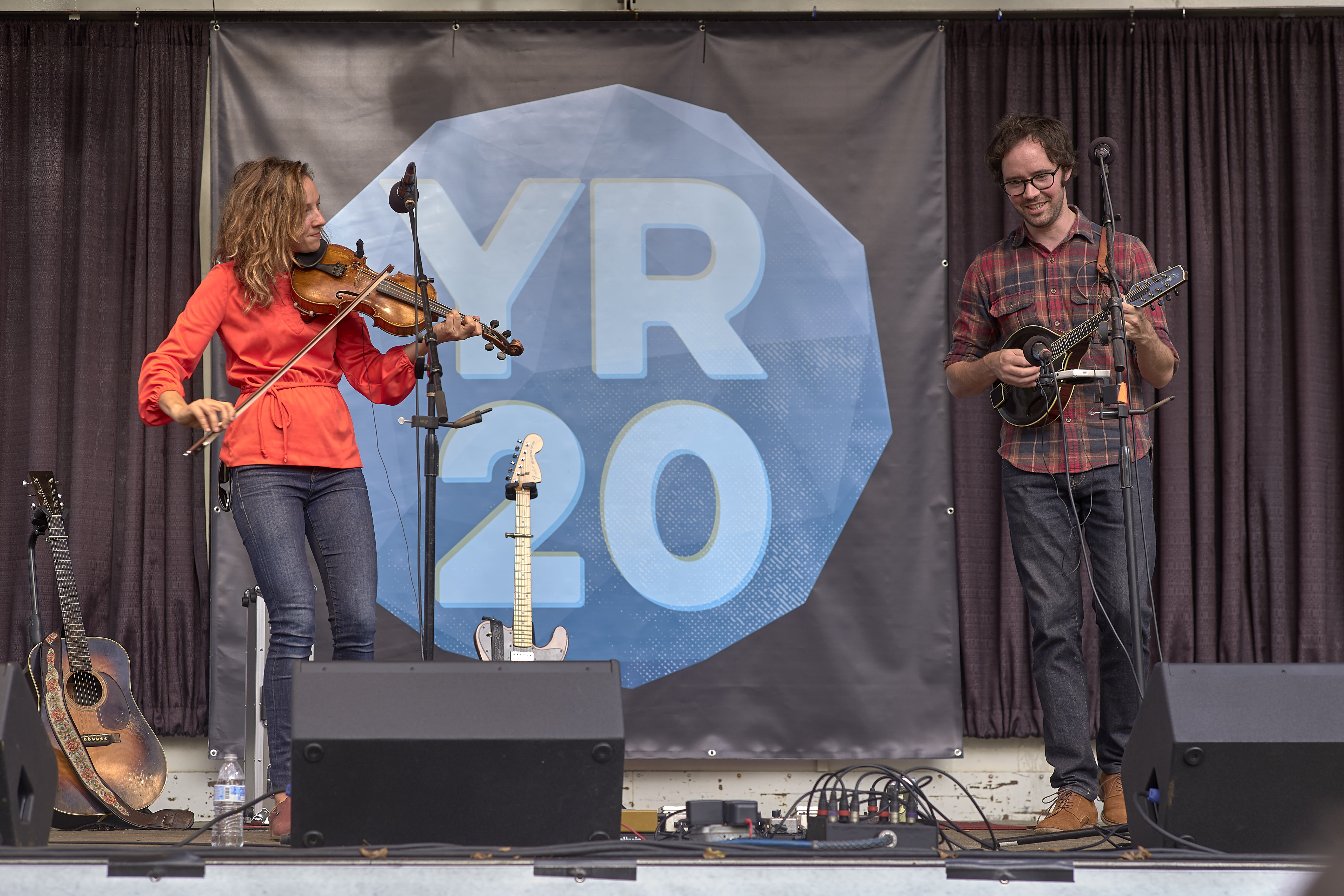When I learned of Doc Watson’s death May 29, I was saddened, but not surprised. News bulletins had earlier reported that Doc, 89, fell at his Deep Gap home a week earlier and was rushed to Wake Forest Baptist Medical Center in Winston-Salem, where doctors also found an abdominal blockage.
I’ve had the privilege of hearing this national treasure perform many times over the last 35 years. I was fortunate to be in the Boone area last July, so I ventured over to the annual Music Fest ‘n Sugar Grove at the old Cove Creek School, an event originally named for this winner of seven Grammies, the Grammy Lifetime Achievement Award and numerous other honors. President Bill Clinton presented Doc with The National Medal of Arts in 1997. Doc also received The North Carolina Award for Fine Arts in 1986 (our state’s highest civilian award) and North Carolina Folk Heritage Award in 1994.
That Saturday night last summer, on a lawn turned concert stage, Doc’s normally clear, high baritone voice seemed somewhat strained. His famous fast flatpicking technique was slower than I remembered from earlier years. The devoted audience hardly seemed to notice. We were in awe, as he characteristically cracked a slight smile as he called on his stage mates to “take it, boys.”
That old school building now houses the Doc and Merle Watson Folk Art Museum. The third Saturday in July has also been declared “Doc Watson Day” by the state and Watauga County for many years.
Doc was backed-up last July by the fabulous Krüger Brothers acoustic trio and his then playing partner, grandson Richard Watson. It didn’t matter that he struggled over a few words or slipped on some chords. After all, this was still Doc Watson, playing to over 2,000 devoted, transfixed fans under a huge tent. It was a magical night.
This year’s Sugar Grove festival brochure has already been printed and shows Doc as the usual headliner. No matter. Doc’s memory will live on forever there, and at Merlefest in Wilkesboro.
I fondly remember taking my father to see Doc once at the Valle Crucis Community Park in 1997. Doc had something in common with my father, too. Both were born and raised in Watauga County and both were 89 when they died.
In a press release, Gov. Bev Purdue said, “Our state was fortunate to have such a worldwide ambassador of North Carolina’s culture and heritage. He will be missed.”
I first experienced Doc’s unpretentious, down-home style in 1976, writing my first music review, as Doc and Merle Watson’s performed at The Pier nightclub, a long closed hotspot in Raleigh’s Cameron Village.
“Do you have a tape recorder, son?” Doc asked after the show. He called everybody “son,” and never gave interviews to anyone without a recorder, so he wouldn’t be misquoted.
“Yes sir,” I said, “of course I do.” I don’t remember much about that session, except the politeness and sincerity of this humble, authentic mountain man, and his willingness to faithfully answer even the most innocuous questions from a greenhorn reporter.
Despite his fame and popularity, Doc was as modest and polite as you could ever ask. He interpreted hundreds of tunes during his long career and called his own particular style “traditional plus,” though some have characterized his complex mix of country, gospel, folk, blues and Appalachian roots music as simply Bluegrass. It has been said that Watson virtually invented the art of playing traditional mountain fiddle tunes on a flattop guitar.
In the days following his death, fans flocked to Doc’s bronze statue unveiled last year near the Mast General Store branch in downtown Boone. Flowers and heartfelt notes almost completely covered the memorialized singer and guitarist, as he sat frozen in time, picking his guitar on a park bench. The statue’s inscription reads “Just One of the People,” as requested by Doc.
At Laurel Springs Baptist Church in Deep Gap June 3, hundreds waited in line to pay their last respects. Doc was posed in his typical concert garb, a red, blue and black checkered shirt, much like the one he had worn in a family portrait, with wife Rosa Lee, son Merle and daughter Nancy, placed in the church vestibule. A miniature guitar lay in an open case beside his left ear. His guitar pick rested between his right hand picking fingers, as if Doc was getting ready to play heavenly tunes in his next afterlife concert. A huge arrangement of yellow roses would later cover the coffin.
Preachers and friends, musicians and neighbors eulogized this legend, blind from infancy, with tale after tale of how this flatpicking, finger-picking phenomenon learned banjo, harmonica and guitar at an earlier age, and how he worked his way up the folk music ladder through the 50s and 60s.
They remembered how Doc played street corners, radio stations and small clubs during his “dues paying days,” before graduating to the Newport Folk Festival and Greenich Village clubs during the 60s folk revival, later touring Europe, Asia and the world. Doc regularly played his home state too, often since 1998, with folklorist David Holt, another NC storyteller and multi-talented minstrel musician. Holt related during the service how “We love you, Doc,” were the last words spoken at Doc’s bedside, just before he died, May 29. Holt posts an extensive tribute to close friend and “musical father” at www.davidholt.com.

Doc Watson, Music Fest ‘n Sugar Grove, 7-9-2011

Mourners Wait to Enter Laurel Springs Baptist Church, Doc Watson Funeral, Deep Gap, NC, June 3, 2012
Check back on Friday, June 15 for the second half of Richard Taylor’s in-depth tribute to Doc Watson.


